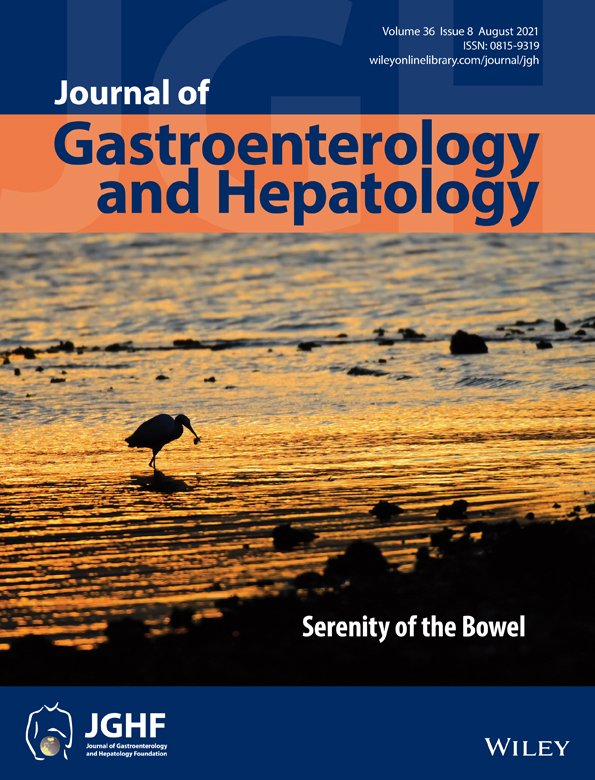Mindfulness-based cognitive therapy in functional dyspepsia: A pilot randomized trial
Kevin Kim-Jun Teh and Yi-Kang Ng contributed equally as first authors.
Declaration of conflict of interest: All authors have no financial disclosures related to the conduct of this study.
Author contribution: K.K.J. Teh, Y.K. Ng, K. Doshi, and Y.T. Wang did the conception and design, data acquisition, data analysis and interpretation, drafting of manuscript, revision of manuscript and final approval of manuscript. L.Y. Ang and H.L.Y. Foong carried out the conception and design, data acquisition, and final approval of manuscript. S.W. Tay, Y. Hao, A.M.L. Ong, K.T.H. Siah, W.P.W. Chan, W.C. Ong, S.J. Mesenas, and C.H. Lim did the data analysis and interpretation, drafting of manuscript, revision of manuscript, and final approval of manuscript.
Financial support: This study has been supported by the Singapore General Hospital New Investigator Grant SRG-NIG#14/2017 from the SGH Division of Research.
Abstract
Background and Aim
Patients with functional dyspepsia (FD) often have concomitant anxiety and depression. Mindfulness-based cognitive therapy (MBCT) combines the principles of cognitive behavioral therapy and mindfulness. It is a group-based therapy and has been shown to be efficacious in functional gastrointestinal disorders. There are no randomized controlled trials (RCTs) evaluating MBCT in FD. We aimed to evaluate feasibility and efficacy of MBCT in FD management.
Methods
We performed a mixed-method single-center pilot randomized trial of 28 patients fulfilling ROME-III criteria for FD. Fifteen patients were randomized to an 8-week MBCT program while 13 underwent treatment-as-usual (TAU). Patients completed questionnaires at baseline and at week 8. Two focus-groups were conducted. Feasibility of recruitment, acceptability of randomization, procedures and intervention, handout compliance and feasibility of quantitative measures were assessed. The primary outcome was subjective-clinical-assessment of FD symptoms (SCA-FD). Secondary outcome measures included Short-form Nepean Dyspepsia Index (SF-NDI), subjective-clinical-assessment of general health (SCA-GH), EuroQoL-Visual Analog Scale (EuroQoL-VAS), and Depression, Anxiety and Stress Scale–21 Items (DASS-21).
Results
Twelve of 15 patients in the MBCT group completed the program. There was a trend towards symptom improvement, with 90% in the MBCT group reporting improvement in SCA-FD compared with 45% in TAU(P = 0.063). Patients who underwent MBCT reported greater improvement in SF-NDI (mean change: −8.8 (SD: 7.5) vs −0.7 (7.2), P = 0.018) and DASS-21 (−19.8 (29.5) vs −5.5 (6.6) P = 0.13) compared with TAU. There was no difference in SCA-GH and EuroQoL-VAS. Based on SCA-FD improvement, the eventual RCT will require 50 patients (25 in each group).
Conclusions
Mindfulness-based cognitive therapy is likely efficacious for FD, and it would be feasible to conduct a RCT.




